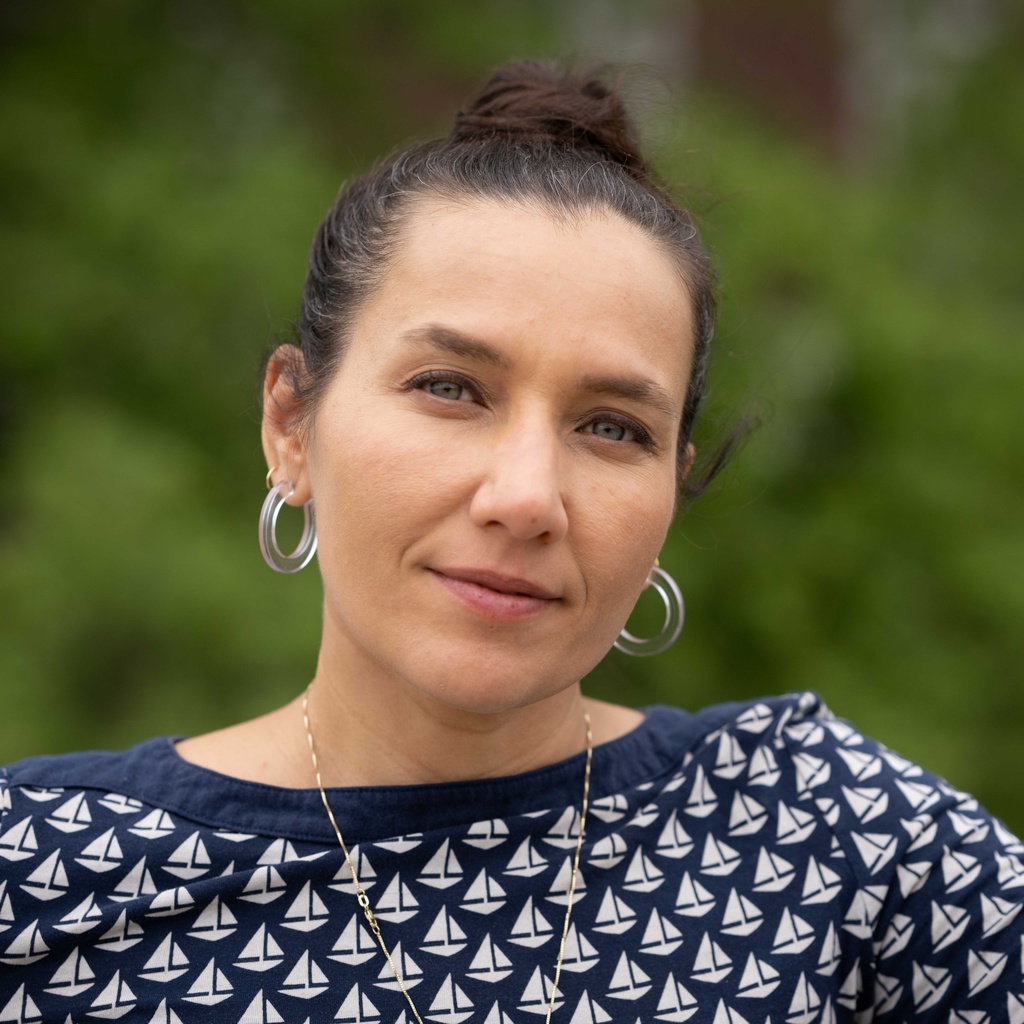The Collegiate Scholar award was inaugurated in 2008 to recognize mid-career faculty for exceptional achievement. The award carries discretionary funds to support the recipient's teaching and research initiatives. Collegiate Scholar awards are funded by a generous unrestricted gift to the College.
The CLAS Committee on Faculty Promotion and Tenure selects each year's class of Collegiate Scholars from among those faculty recommended for promotion and/or tenure.
2025-2027

Kaveh Akbar
Kaveh Akbar is a professor and director of the English and creative writing major. Akbar’s debut novel, Martyr! landed on the New York Times Best Seller list and Top 10 Books of 2024. The novel was also a finalist for the National Book Award. Akbar is an accomplished author who has also had his poetry published in the The New Yorker, PBS NewsHour, Paris Review, Best American Poetry, and The New York Times.

Drew Kitchen
Drew Kitchen is an associate professor and anthropological geneticist with interests in human population history and the origins of human infectious disease. He uses an evolutionary perspective to investigate the processes that have produced observed, modern distributions of human genetic and pathogen/parasite diversity.
2024-2026

Matthew Hill
Matthew Hill is a professor in the Department of Anthropology and also serves as director of undergraduate studies. His research is informed by the principles of historical ecology, which attempts to integrate the notions of ecology and the environment as central themes in the study of human societies. Hill's work focuses on landscape-scale processes of human-environment interactions expressed in long-term behavioral changes (spanning from the end of the ice age to the historic period) across various environmental settings (great plains grasslands, Rocky Mountains, desert southwest).

Ryan Kinser
Ryan Kinser is a professor in the Department of Mathematics. He also serves as the Chair (DEO). His research interests lie in representation theory of algebras, geometric methods in representation theory, and combinatorics.

Damani Phillips
Damani Phillips is an associate professor in the School of Music and African American Studies. His scholarly research focuses on addressing cultural concerns in the pedagogy of Black music within academia. He published his first book titled “What is This Thing Called Soul: Conversations on Jazz and Black Culture” in 2017, which delves into the difficult, yet timely, topic of the decline of Black cultural influence and representation in jazz as traditionally taught in academic spheres.
2023-2025

Melissa Febos
Melissa Febos is a best-selling author and has written four books, including the essay collection GIRLHOOD. Febos is a 2022 Guggenheim Fellow, a 2022 National Endowment for the Arts Literature Fellow, and the winner of the Jeanne Córdova Nonfiction Award from LAMBDA Literary, along with other awards and honors. Her essays have appeared in The New York Review of Books, Tin House, Granta, The Paris Review, The Yale Review, The Sun, The Believer, The Sewanee Review, and The New York Times Magazine.

Ryan LaLumiere
Ryan LaLumiere and his laboratory concentrate on two lines of research: the neural circuitry underlying memory consolidation and the neurobiology underlying cocaine-seeking behavior in rats. In the memory consolidation work, he uses optogenetics in combination with different learning tasks in rats to elucidate the neural pathways that underlie the consolidation of different types of memories. In the addiction work, he uses a drug self-administration model to understand the relapse to drug-seeking behavior. LaLumiere has published several articles relevant to his research.

Melissa Tully
Melissa Tully studies news literacy, misinformation, and global media with a particular focus on African media studies, and engagement. She is currently researching misinformation and news literacy in Kenya and Senegal. She is also the Director of the Global Media Studies Working Group at the Obermann Center and a Senior Research Fellow in the Public Policy Center. Tully has published several articles relevant to her research.
2022-2024

Tori Forbes
Tori Forbes’s research focuses on environmental and atmospheric chemistry, with interests in fundamental actinide chemistry, the development of metal organic nanotubes, and the transport of nuclear waste and heavy materials in environmental systems. She is the founder of the Forbes Research Group at Iowa, a group working towards the development of novel nanomaterials that provide an enhanced understanding of basic actinide chemistry and the mobility of nuclear materials in environmental systems. She is also the recipient of the UI Honors Lane Davis Team Teaching Award.

Jasper Halekas
Jasper Halekas’s research interests are in experimental space physics and space plasma physics, with his areas of expertise including topics such as Mars, the moon, and the NASA MAVEN mission. Halekas seeks to broaden our understanding of the impact of the sun and the solar wind on our solar system and its evolution through his research. He is also the recipient of a NASA Silver Achievement Medal for his involvement with the NASA Parker Solar Probe mission, which is studying the sun’s atmosphere.